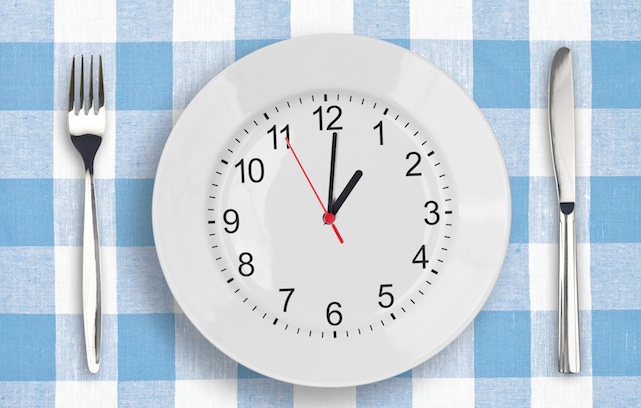Keeping in mind that everyone is individual and unique, a healthy lifestyle diet is embodied by 3 meals and 1-2 snacks per day.
Timing of each meal:
Breakfast – 6-8am It is important to consume the first meal ½ an hour upon rising as this is the time that the metabolism will start to work. Consuming a meal with protein and fibre is most optimal in the morning
1st snack – 10am Although not always needed, this morning snack can be important to satisfy hunger until lunch by raising the blood sugar level in order to prevent a complete drop

Lunch – 11:30-1pm Never skip a meal! Lunch is required to keep energy and stamina going. A great suggestion would be soup, salad or sandwich – always with a healthy source of protein. Vegetables and fruit are a must at this meal as well.
2nd snack – 3-4pm Mandatory! Studies have shown that consuming a snack between lunch and dinner has effectively lowered the occurrence of over eating at nighttime. As well it has been shown successful with weight loss and weight management
Dinner – 6-7pm The timing of dinner is imperative to a healthy lifestyle. Eating before 7pm is optimal for blood sugar balancing and digestion. For dinner focus on consuming protein and vegetables paired with a healthy fat. If possible skip any high carbohydrate foods as these will spike blood sugar levels and they will ultimately drop late in the night – triggering hunger sensors and late night eating
Mindful eating
Mindful eating involves paying full attention to the experience of eating and drinking, both inside and outside the body. I have learned about this way of eating from nutrition experts Joyous Health and Kris Carr – feel free to check them out for more information! We pay attention to the colors, smells, textures, flavours, temperatures, and even the sounds (crunch!) of our food. We pay attention to the experience of the body. Where in the body do we feel hunger? Where do we feel satisfaction? What does half-full feel like, or three quarters full?
We also pay attention to the mind. While avoiding judgement or criticism, we watch when the mind gets distracted, pulling away from full attention to what we are eating or drinking. We watch the impulses that arise after we’ve taken a few sips or bites: to grab a book, to turn on the TV, to call someone on our cell phone, or to do web search on some interesting subject. We notice the impulse and return to just eating.

